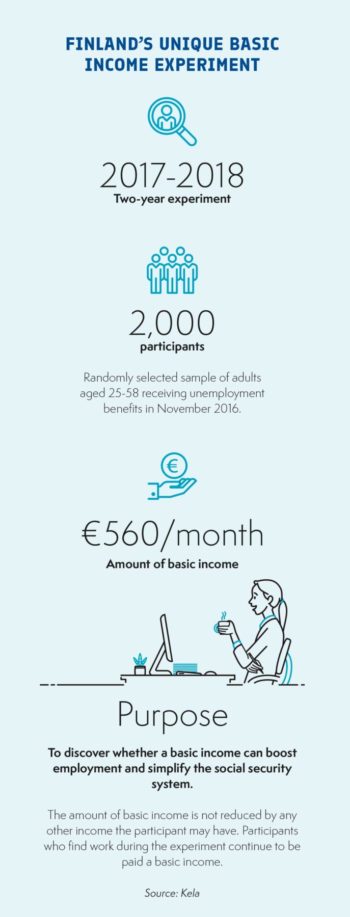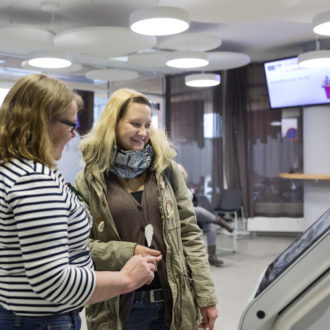Markus Kanerva at the political analysis unit of the Prime Minister’s Office says that the purpose of the basic-income experiment is to pragmatically test whether people are motivated to accept work when extra income does not reduce their social benefits.
“During the trial period [January 1, 2017–December 31, 2018], the unemployed person gets to keep their basic income in full, even if they find a job,” says Kanerva. “It is believed this will motivate the unemployed to accept work even if the pay is not high or the job does not last long.”
A basic income is not a cure-all, but for 30–40-somethings who have short-term employment contracts, it seems to be a perfect fit. Miska Simanainen, a researcher at the Social Insurance Institution of Finland (often called by its Finnish abbreviation, Kela), points out that the proponents of basic income often claim that it would fit the needs of various self-employed persons, such as freelancers.
Preventing poverty is not a goal of the experiment.
“The basic income in itself does not necessarily reduce poverty as much as expected,” Simanainen says. “Reducing poverty depends on the level of the basic income and how other elements of social security are arranged.”
Could lead to a policy that reduces bureaucracy
Kanerva explains that social benefits are already underutilised in the current system, because people do not know they are available.
“However, the experiment could result in a basic-income–like policy,” he says. “This could include an automatic basic level of support, which would reduce bureaucracy and the intermittent nature of benefits. In other words, the system would combine various benefits, such as business startup allowances and social security funds.”
The experiment is unrealistic in the sense that the participant gets to keep the entire income, even if they find a full-time job. If the basic income was implemented more widely, it would probably be recovered through taxation after a certain salary threshold was reached.
Because the basic income mainly replaces existing benefits, the experiment is not very expensive. It is calculated to cost an extra 7.5 million euros over two years. The first results of the experiment become available at the beginning of 2019.
“During the experiment, not even the preliminary results can be published, to ensure that they do not affect the study subjects’ behaviour,” Kanerva says.
This is how we do it

By Tuomas Muraja, ThisisFINLAND Magazine 2018







